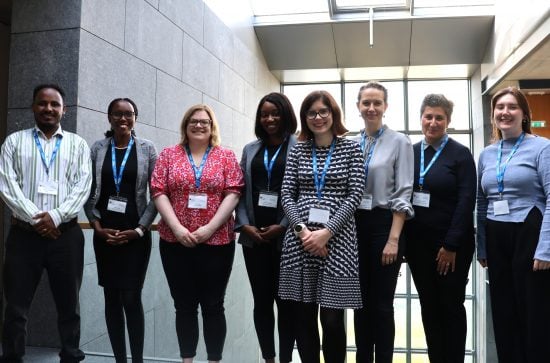
Internally Displaced Persons (IDPs) are persons who have been forced or obliged to flee or leave their homes or places of habitual residence for a variety of different reasons, but who have not crossed a state border. IDPs are amongst the most vulnerable groups of people in the world. They flee for many reasons, including conflict, violence, human rights violations, and disasters, and often lack adequate shelter, food, clean water, healthcare, and education. We are now witnessing the largest global IDP population on record, numbering at least 75.9 million at the end of 2023. With the expected impacts of climate change and without ambitious climate action, the numbers will likely increase in the coming years.
In June 2022, the UN Secretary-General’s Action Agenda on Internal Displacement called for states to develop and implement ‘relevant laws and policy frameworks to address IDPs’ rights.’ Maynooth University’s School of Law and Criminology responded to this call by hosting its second workshop on IDP Law and Policy on 19 September 2024. The workshop was generously supported by the School of Law and Criminology and the Social Sciences Institute.
The workshop was organised by Dr Bríd Ní Ghráinne, Associate Professor at the School of Law and Criminology. It gathered participants from various disciplines, countries, and career stages to showcase their research and gain detailed feedback from their peers. Papers presented included:
- ‘Unpacking the Human Trafficking – Climate-Related – Disaster Displacement Nexus: Implications for Legal Approaches to Internal Displacement’ by Gillian Kane, Ulster University
- ‘Development-Induced Displacements and Development Finance: Analysis of Bilateral Development Finance Institutions’ Involuntary Resettlement Policies against Human Rights Standards on Displacements’ by Janet J Sego, University of Antwerp
- ‘Internally Displaced Persons as a Vulnerable Group’ by Nnenne Uzoigwe, University of Lincoln
- ‘Housing and Property Rights as Part of Durable Solutions: Case of Internally Displaced Persons in Ukraine (2014-2021)’ by Lidia Kuzemska, Forum Transregionale Studien, Berlin
- ‘‘Providing the Means and Creating the Conditions for Durable Solutions for IDPs: Beyond the State’s Primary Responsibility and Potential Human Rights Issues’ by Deborah Casalin, University of Antwerp Faculty of Law, Belgium, and Global Migration Centre of the Geneva Graduate Institute
- ‘Safe Zones and International Humanitarian Law’ by Bríd Ní Ghráinne, Maynooth University
- ‘An Unprosecuted Crime: Accountability for Arbitrary Displacement under Ethiopia’s Domestic Legal Procedure and the Practice’ by Alemayehu Hordofa, the International Institute of Social Studies, Erasmus University Rotterdam
The outputs of the workshop will be published in the Working Papers on Internal Displacement series on the Researching Internal Displacement Platform.
